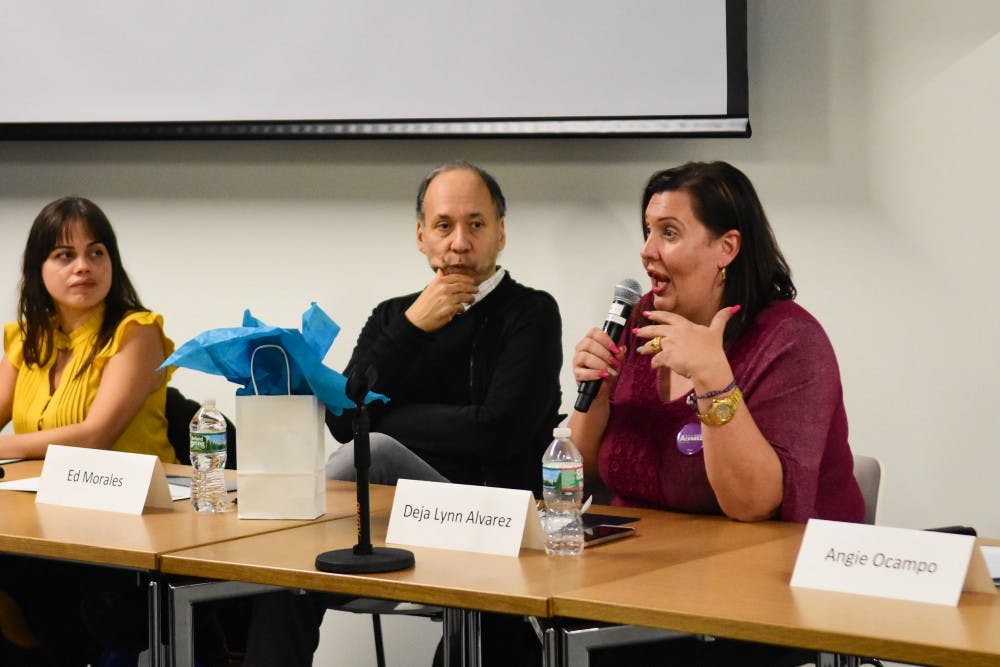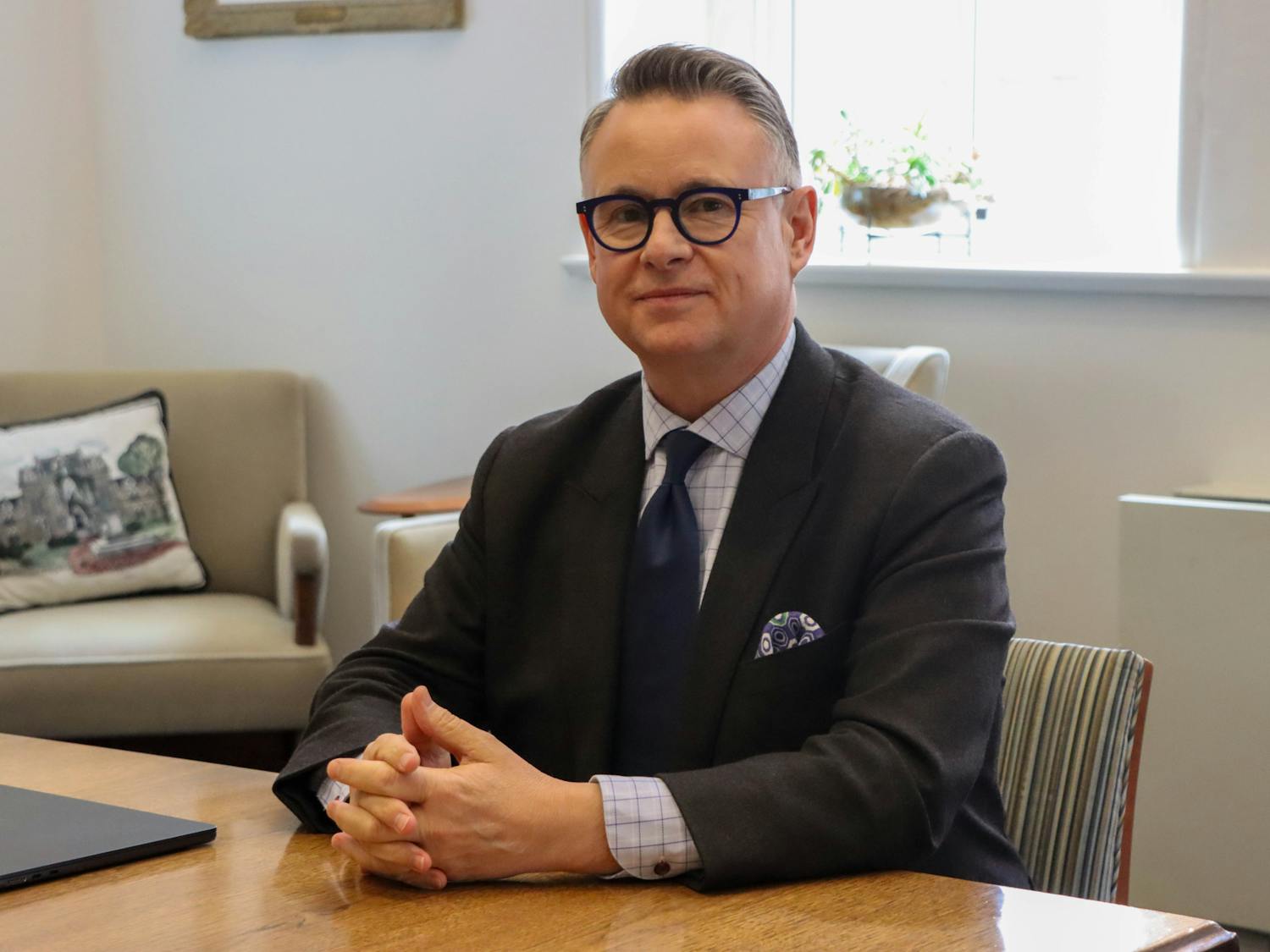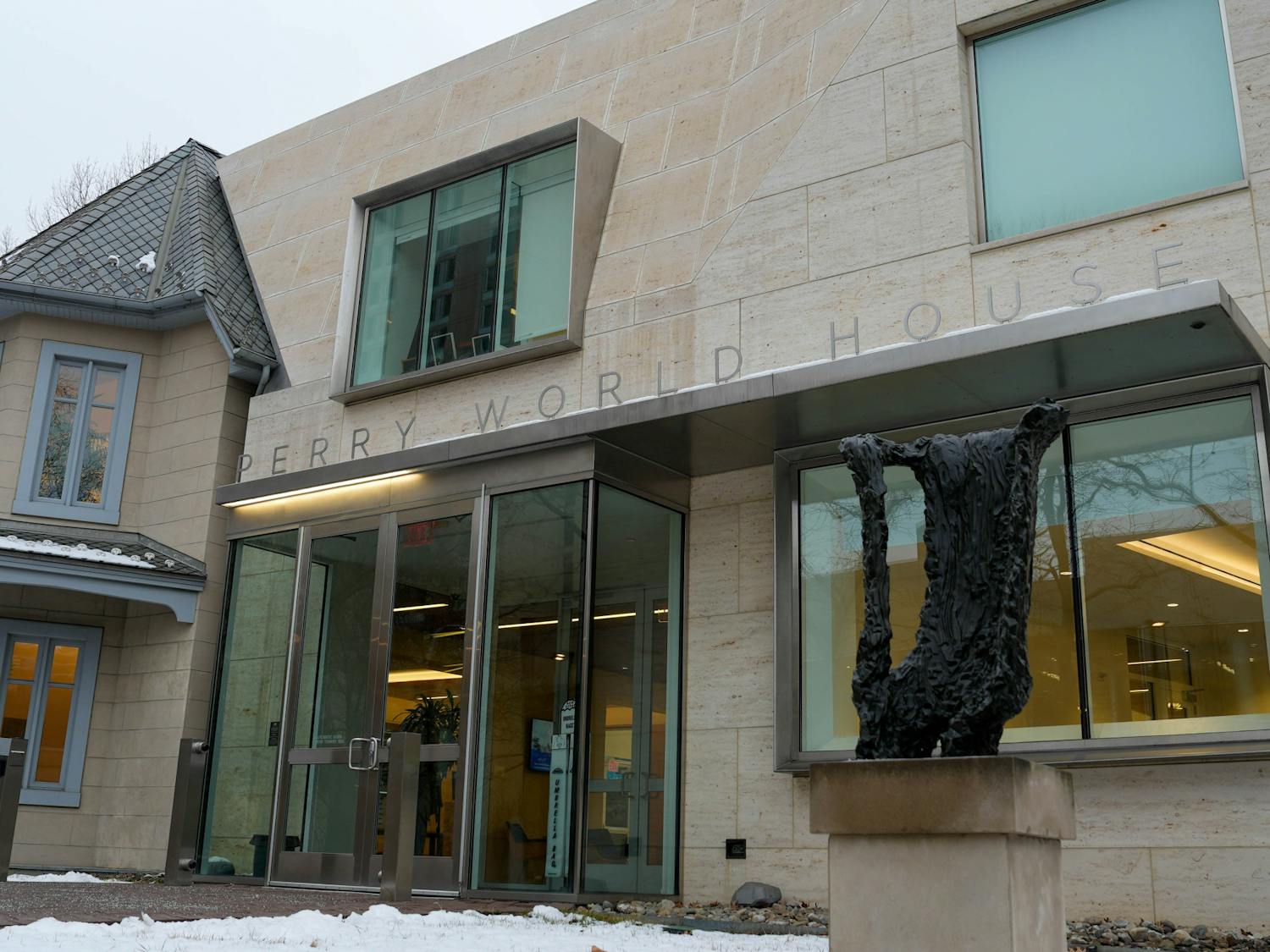A panel on Monday night featured a discussion that centered on the term "Latinx" and gender inclusivity within the Latinx community at Penn.
Several panelists discussed the origins, meaning, and significance of the term "Latinx" — a gender-neutral alternative to Latino or Latina. While the pronoun breaks from traditional Spanish grammar, where verbs are conjugated in a specific gender, the term "Latinx" has been used in media outlets and academic centers to promote gender inclusivity.
The event, held at the Perelman Center for Political Science and Economics, was organized by the Penn Latin American & Latino Studies Program Undergraduate Advisory Board, the Latin American Graduate and Professional Student Assembly, and the Cipactli Latino Honor Society.
The panel featured College sophomore Silvia Ayala, an LALS UAB member, Selma Feliciano Arroyo, a Penn Hispanic and Portuguese Studies lecturer, Adrián Rivera-Reyes, a Penn Medicine researcher, Deja Lynn Alvarez, a Latinx transgender woman running for Philadelphia city council, and Ed Morales, author of "Latinx: The New Force in American Politics and Culture."
Morales presented a possible trajectory for how the term "Latinx" evolved: People began writing Latino/a to include women, then shifted to writing Latin@. He said Latinx, which is now the preferred term for many, is more inclusive because it encompasses the community's racial and ethnic diversity.
“Female-identified people and non-binary people have been invisibilized under the 'o,'" Arroyo said, referring to the term "Latino."

Latin American and Latino Studies Program Director Tulia Falleti is considering using "Latinx" in the title of the program.
Alvarez discussed the term "Latinx" in the context of her own personal identity. She said as a transgender woman, she was excited to see a word that could encompass gender non-binary individuals.
RELATED:
Students reflect on this year’s Festival Latinx and the power of exploring minority identity
Latinx Heritage Month provides a source of support and joy for students during an uncertain time
"If it includes more people, I don't understand what the problem is to use it," Alvarez said.
Cipactli President and Wharton senior Ernesto Rosales, who attended the panel, said the event gave him a new perspective on the term.
"I'm from Miami and they use the word 'Hispanic' predominantly," Rosales said, "This is a way for me to learn more about the use of 'Latinx.'"
Panelists also discussed whether Penn's Latin American and Latino Studies Program should adopt the term "Latinx."
Ayala said she has seen other universities and student groups start using the term in place of "Latino," but Penn continues to lag behind.
“[The] University of Oklahoma renamed their [Latino Studies department] Latinx Studies," Ayala said. "If they can do it, we can do it too.”
Alvarez agreed that Penn should incorporate the gender-neutral term, adding that "Penn should continue being a leader."
After the event, Latin American and Latino Studies Program Director Tulia Falleti said she is seriously considering adopting the term "Latinx" as part of the program title.
“It’s part of the conversation that’s organically generated by students like Silvia who have proposed the change," Falleti said, adding, "We don’t foresee any resistance in the administration towards the change.”









